Related Research Articles
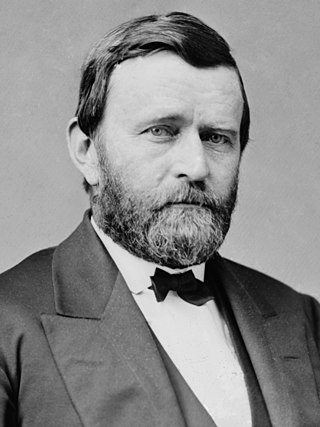
The 1868 United States presidential election was the 21st quadrennial presidential election, held on Tuesday, November 3, 1868. In the first election of the Reconstruction Era, Republican nominee Ulysses S. Grant defeated Horatio Seymour of the Democratic Party. It was the first presidential election to take place after the conclusion of the American Civil War and the abolition of slavery. It was the first election in which African Americans could vote in the reconstructed Southern states, in accordance with the First Reconstruction Act.
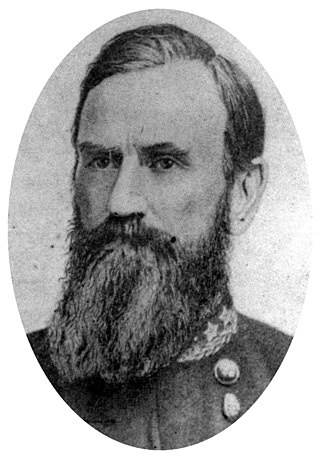
Benjamin Grubb Humphreys was an American politician from Mississippi. He was a general in the Confederate States Army during the American Civil War and served as Governor of Mississippi from 1865 to 1868, during Reconstruction.
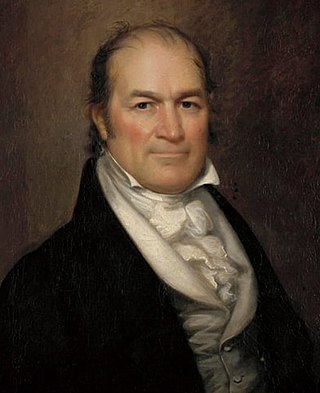
William Harris Crawford was an American politician and judge during the early 19th century. He served as US Secretary of War and US Secretary of the Treasury before he ran for US president in the 1824 election.
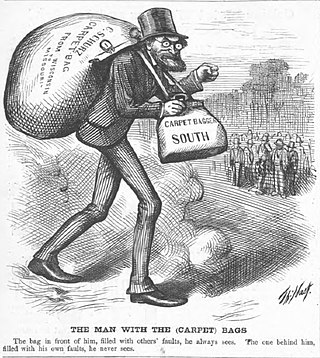
In the history of the United States, carpetbagger is a largely historical pejorative used by Southerners to describe allegedly opportunistic or disruptive Northerners who came to the Southern states after the American Civil War, and were perceived to be exploiting the local populace for their own financial, political, or social gain. The term broadly included both individuals who sought to promote Republican politics, and individuals who saw business and political opportunities because of the chaotic state of the local economies following the war. In practice, the term carpetbagger often was applied to any Northerners who were present in the South during the Reconstruction Era (1865–1877). The word is closely associated with scalawag, a similarly pejorative word used to describe native white Southerners who supported the Republican Party-led Reconstruction.
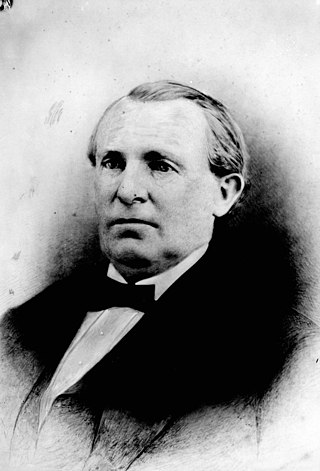
Curtis Hooks Brogden was an American farmer, attorney and politician who served as the 42nd governor of the U.S. state of North Carolina from 1874 to 1877 during the Reconstruction era. He succeeded to the position after the death of Governor Tod R. Caldwell, after having been elected as the 2nd lieutenant governor of the state on the Republican ticket in 1872.
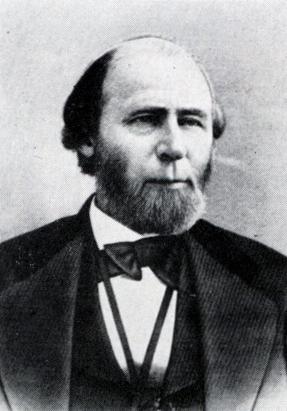
William Woods Holden was an American politician who served as the 38th and 40th governor of North Carolina. He was appointed by President Andrew Johnson in 1865 for a brief term and then elected in 1868. He served until 1871 and was the leader of the state's Republican Party during the Reconstruction Era.

Jonathan Worth was the 39th governor of the U.S. state of North Carolina from 1865 to 1868, during the early years of Reconstruction.

John Pool was a Republican U.S. Senator from the state of North Carolina between 1868 and 1873. He was also the uncle of Congressman Walter Freshwater Pool.
The Red Strings, also known as the Heroes of America, were a group active primarily in the Southern United States during the American Civil War. They favored peace, an end to the Confederacy, and a restoration of the Union. They began early in the war as a group of Unionists and Quakers in the Piedmont regions of North Carolina and Virginia, where slavery was not as prevalent and the forces favoring secession were weakest.

Joseph Roswell Hawley was the 42nd Governor of Connecticut, a U.S. politician in the Republican and Free Soil parties, a Civil War general, and a journalist and newspaper editor. He served two terms in the United States House of Representatives and was a four-term U.S. Senator.

William Claflin was an American politician, industrialist, and philanthropist from Massachusetts. He served as the 27th governor of Massachusetts from 1869 to 1872 and as a member of the United States Congress from 1877 to 1881. He also served as chairman of the Republican National Committee from 1868 to 1872, serving as a moderating force between the Radical and moderate wings of the Republican Party. His name is given to Claflin University in South Carolina, a historically black college founded with funding from him and his father.
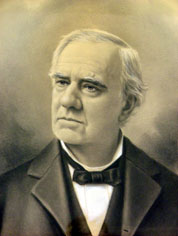
Samuel Field Phillips was a civil rights pioneer, lawyer, politician who served as the second Solicitor General of the United States (from 1872 to 1885). He then took part in the landmark civil rights case, Plessy v. Ferguson.
Popular opposition to the American Civil War, which lasted from 1861 to 1865, was widespread. Although there had been many attempts at compromise prior to the outbreak of war, there were those who felt it could still be ended peacefully or did not believe it should have occurred in the first place. Opposition took the form of both those in the North who believed the South had the right to be independent and those in the South who wanted neither war nor a Union advance into the newly declared Confederate States of America.
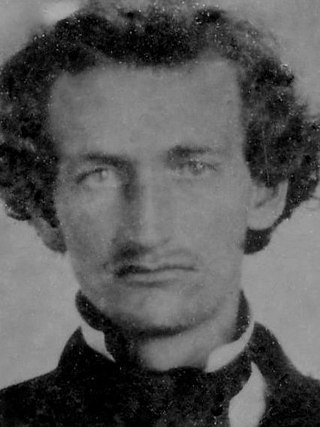
James M. Hinds was the first U.S. Congressman assassinated in office. He served as member of the United States House of Representatives for Arkansas from June 24, 1868 until his assassination by the Ku Klux Klan. Hinds, who was white, was an advocate of civil rights for black former slaves during the Reconstruction era following the American Civil War.

During the American Civil War, North Carolina joined the Confederacy with some reluctance, mainly due to the presence of Unionist sentiment within the state. A popular vote in February, 1861 on the issue of secession was won by the unionists but not by a wide margin. This slight lean in favor of staying in the Union would shift towards the Confederacy in response to Abraham Lincoln's April 15 proclamation that requested 75,000 troops from all Union states, leading to North Carolina's secession. Similar to Arkansas, Tennessee, and Virginia, North Carolina wished to remain uninvolved in the likely war but felt forced to pick a side by the proclamation. Throughout the war, North Carolina widely remained a divided state. The population within the Appalachian Mountains in the western part of the state contained large pockets of Unionism. Even so, North Carolina would help contribute a significant amount of troops to the Confederacy, and channel many vital supplies through the major port of Wilmington, in defiance of the Union blockade.

Erastus Root was an American lawyer and politician from New York. He is most notable for serving four separate non-consecutive terms in the U.S. House of Representatives in the early 19th century.

David Heaton was an American attorney and politician, a US Representative from North Carolina. He earlier was elected to the state senates of Ohio and Minnesota.

Brooks Donohue Simpson is an American historian and an ASU Foundation Professor of History at Arizona State University, specializing in American political and military history, especially the American Civil War and Reconstruction eras and the American presidency.
George Washington Logan was a North Carolina politician who served in the Confederate States Congress during the American Civil War as a peace and Unionist candidate.
The Whitfield family was a prominent American political family of the Southern states. The Whitfields formed the American branch of the British Whitfield family - having descended from the British aristocracy, particularly the Earls of Kilmorey and having established colonial residency under Sir. Thomas Whitfield, whom headed East India Trading for the British Empire. In early days of Colonial America, the family emigrated to Virginia in the seventeenth century, particularly, Nansemond County, Virginia from Lancashire, England.
References
- ↑ "History of the Office". Office of the State Auditor . Retrieved 2020-07-08.
- ↑ Auman, William T. (2014). Civil War in the North Carolina Quaker Belt: The Confederate Campaign Against Peace Agitators, Deserters and Draft Dodgers. McFarland. p. 148. ISBN 978-0-7864-7663-3.
- ↑ Auman, William T.; Scarboro, David D. (1981). "The Heroes of America in Civil War North Carolina". The North Carolina Historical Review. 58 (4): 336. ISSN 0029-2494. JSTOR 23538671.
- ↑ United States Congress (1868). The Congressional Globe. Blair & Rives. p. 579.
- ↑ Tussey, William Glenn (1992). Gersham Tussey and His Kin: A History of the North Carolina Branch of the Tussey Family and Their Descent from New Sweden, the Swedish Colony Founded in the Delaware Valley, 1638. Halcyon House.